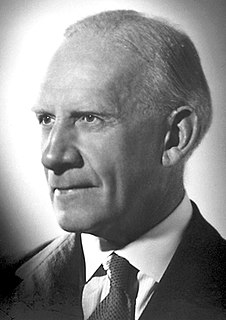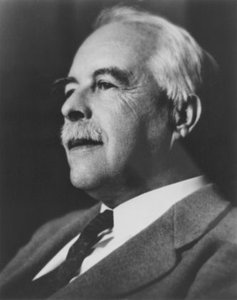A Quote by Justus von Liebig
But it must not be forgotten that ... glass and porcelain were manufactured, stuffs dyed and metals separated from their ores by mere empirical processes of art, and without the guidance of correct scientific principles.
Related Quotes
A system is empirical or scientific only if it is capable of being tested by experience. These considerations suggest that not the verifiability but the falsifiability of a system is to be taken as a criterion of demarcation... It must be possible for an empirical or scientific system to be refuted by experience.
To be worthy of the name, an experimenter must be at once theorist and practitioner. While he must completely master the art of establishing experimental facts, which are the materials of science, he must also clearly understand the scientific principles which guide his reasoning through the varied experimental study of natural phenomena. We cannot separate these two things: head and hand. An able hand, without a head to direct it, is a blind tool; the head is powerless without its executive hand.
The belief that politics can be scientific must inevitably produce tyrannies. Politics cannot be a science, because in politics theory and practice cannot be separated, and the sciences depend upon their separation. Empirical politics must be kept in bounds by democratic institutions, which leave it up to the subjects of the experiment to say whether it shall be tried, and to stop it if they dislike it, because, in politics, there is a distinction, unknown to science, between Truth and Justice.
Our goals should stretch us bit by bit. So often when we think we have encountered a ceiling, it is really a psychological or experimental barrier that we have built ourselves. We built it and we can remove it. Just as correct principles, when applied, carry their own witness that they are true, so do correct personal improvement programs. But we must not expect personal improvement without pain or some 'remodeling.' We can't expect to have the thrills of revealed religion without the theology. We cannot expect to have the soul stretching without Christian service.
There are two principles inherent in the very nature of things, recurring in some particular embodiments whatever field we explore - the spirit of change, and the spirit of conservation. There can be nothing real without both. Mere change without conservation is a passage from nothing to nothing. . . . Mere conservation without change cannot conserve. For after all, there is a flux of circumstance, and the freshness of being evaporates under mere repetition.
Since religion intrinsically rejects empirical methods, there should never be any attempt to reconcile scientific theories with religion. An infinitely old universe, always evolving, may not be compatible with the Book of Genesis. However, religions such as Buddhism get along without having any explicit creation mythology and are in no way contradicted by a universe without a beginning or end. Creatio ex nihilo, even as religious doctrine, only dates to around AD 200. The key is not to confuse myth and empirical results, or religion and science.
What attracted me about my mirrors was the idea of having nothing manipulated in them. A piece of bought mirror. Just hung there, without any addition, to operate immediately and directly. Even at the risk of being boring. Mere demonstration. The mirrors, and even more the Panes of Glass, were also certainly directed against Duchamp, against his Large Glass.







































